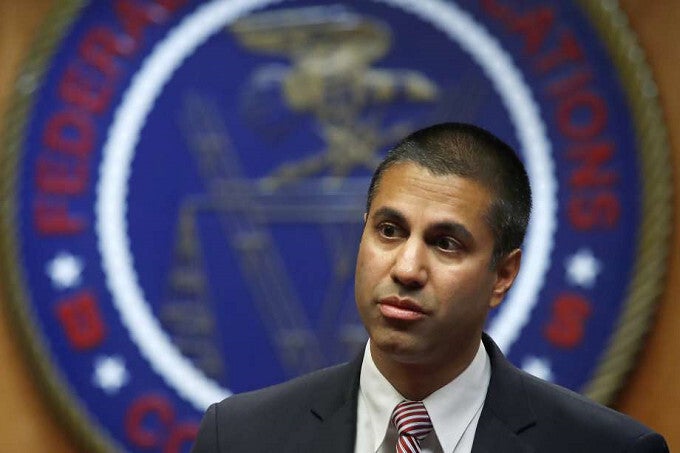Departing FCC Chairman Pai orders some U.S. carriers to rip out and replace Huawei, ZTE equipment

The current Chairman of the FCC in the U.S. is Ajit Pai. Appointed to the position by Donald Trump, Pai will leave the FCC on January 20th, the day that the new Biden administration checks in. But that leaves Pai approximately five weeks to continue the current administration's actions against Huawei and other Chinese manufacturers. Whether President-elect Biden reverses these orders when he moves to 1600 Pennsylvania Avenue is uncertain. But the FCC has just ordered carriers that receive money from the Universal Service Fund to "rip and replace" equipment made by Huawei and ZTE.
FCC Chairman Pai orders certain U.S. carriers to "rip and replace" networking gear made by Huawei and ZTE
The carriers being forced to do this are those that receive subsidized funding from the Universal Service Fund (USF). Last year, the FCC banned these carriers from purchasing networking gear from Huawei and ZTE; the new order forces carriers to remove older equipment they use that were produced by the two Chinese companies. While both outfits are among the top 5G networking equipment suppliers worldwide, both are also considered national security threats in the U.S. Oversight of the USF is the job of the FCC and the latter collects $8.5 billion a year from fees charged to customers of U.S. carriers. Some of this money is used to make sure that rural Americans, many of whom would not be able to afford internet service, can do so by making subsidized payments.

FCC Chairman Pai, leaving his job on January 20th, has a parting gift for Huawei and ZTE
You might be asking yourself why these smaller carriers would use Huawei's gear for their networks in the first place. Well, most telecom firms consider Huawei's gear to be the best. And thanks to connections with China's state-run bank, the company can offer its customers favorable financing terms. Huawei is the global leader in providing networking gear to wireless service providers and ZTE is number four.
FCC Chairman Pai released a statement earlier today in which he said, "Just a few minutes ago, we adopted rules requiring certain carriers to remove from their networks equipment that poses a threat to our national security and the integrity of the country’s communications networks and implementing the Secure and Trusted Communications Networks Reimbursement Program that will help smaller service providers shoulder the cost of removing and replacing such equipment.
Earlier this year, our Public Safety and Homeland Security Bureau issued a final designation of Huawei Technologies Company, along with its parent, affiliate, and subsidiary companies, as a national security threat as part of the Commission’s ongoing efforts to protect our nation’s communications networks and their supply chains.And today, we affirm the Bureau’s Order designating Huawei as a threat to national security and our nation’s communications infrastructure. A laundry list of evidence before us compels this result and is set forth in our decision today.
But to summarize some of the main points, Huawei has a long and well-documented history of close ties to the Chinese military and intelligence communities, as well as the Chinese Communist Party, at every level of the company—all the way up to its founder. Huawei is subject to sweeping Chinese intelligence laws compelling Huawei’s assistance and cooperation with Chinese intelligence services and forbidding the disclosure of that assistance. Moreover, the concerns about Huawei aren’t just hypothetical: Independent entities have identified numerous security vulnerabilities in Huawei equipment and found it to be less secure than that of other companies—perhaps deliberately so.Our decision today to uphold the Bureau’s final designation order will have a direct impact on the security and integrity of the country’s networks. Carriers will continue to be unable to use support from the Commission’s Universal Service Fund to purchase network equipment or services from Huawei, thus helping to keep its insecure equipment out of our networks."
Last year, when the FCC first discussed forcing rural carriers to rip and replace Huawei gear, the FCC estimated that such work would take $1.89 billion and two years to complete.
Follow us on Google News













Things that are NOT allowed:
To help keep our community safe and free from spam, we apply temporary limits to newly created accounts: